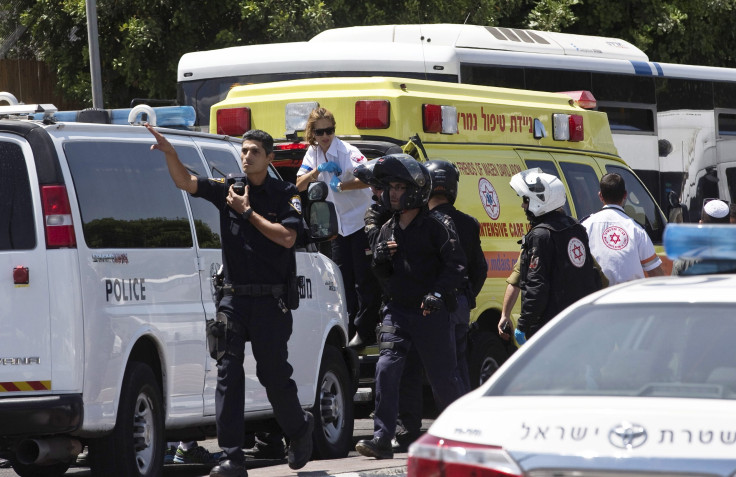Jerusalem Police Won't Escort Israeli Ambulances Into Palestinian Neighborhoods, Official Says

Israeli police admitted last month that safety policies prevent officers from escorting Israeli ambulances to Palestinian neighborhoods within Jerusalem, according to a report released Wednesday. The disclosure came amid increased scrutiny of Israeli police activities and policies toward the Palestinian population.
For approximately 10 years, police have avoided ambulance runs to Palestinian neighborhoods located within Jerusalem’s city limits, but outside the separation wall that divides Israeli territory from the West Bank, Haaretz reported. But Jerusalem police chief Moshe Edri’s admission of the policy during a recent meeting with the Association for Civil Rights in Israel marked the first time it was brought to public light.
“As a rule, the Israel Police doesn’t guard ambulances on entry, due to the risk to its forces and to the [local] population,” Edri’s office said in a statement to the civil rights group. The police chief purportedly said there were no plans to change the policy.
During the meeting, the Association for Civil Rights in Israel questioned police officials about several of its tactics in East Jerusalem neighborhoods. One criticism involved Israeli police’s use of “the skunk,” the device which uses foul-smelling liquid to disperse crowds.
Arrest data made public last month revealed Israeli Arabs were seven times more likely to be detained during protests than Jews last year, Haaretz reported. Approximately 1,500 Arabs were arrested for illegal assembly alone in 2014. The statistics drew criticism from leading Israeli Arab advocates, including Knesset member Esawi Freige, who accused elements within the government of provoking Israeli’s Arab population.
Widespread protests unfolded in Tel Aviv last November after Israeli police’s fatal shooting of an Arab man who appeared to be fleeing was caught on video, the Associated Press reported. That same month, Palestinians in east Jerusalem confronted police in disputes over who would be permitted access to the Temple Mount, a site that both Muslims and Jews consider holy.
© Copyright IBTimes 2024. All rights reserved.





















